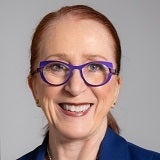Coca-Cola Diversity, Equity and Inclusion Summit
I am the full-stop, the exclamation mark and the question mark.
The vision of this summit is that “It’s not about changing the player, it’s about changing the field they are play on.”
We have heard about the business case, the moral case and the human rights case.
This December is the 75th anniversary of the Universal Declaration of Human Rights, marking the day, on 10 December 1948, when the General Assembly of the United Nations adopted this great benchmark document.
It begins in its very first article that ‘All human beings are born free and equal in dignity and rights’. [Liz Broderick spoke of this]
But as we know, being born this way does not necessarily mean that you will enjoy equality either in dignity or rights until ‘the playing field’ on so many levels is changed. [Lois Peeler spoke of this – of the power of education in giving choice].
And even when it is evened, for a time, it can be changed again –– look at Afghanistan under the Taliban in the 1990s and then again two years ago, or the Taliban terrorism in Pakistan. So many in this room were affected, either directly like Malala, or through supportive interventions like Craig Foster, and those in my area, through interventions of national human rights institutions to get the NHRI staff out, and the IAWJ’s support of women judges.
What does the UDHR mean in this context?
The Chair of the Drafting Committee was the indomitable Eleanor Roosevelt – a fabulous older woman. A woman of privilege and education she used them to good effect, and she is recognised as the driving force for its adoption. Writing on the 10th anniversary of the UDHR, in 1958, Mrs Roosevelt asked, ‘Where ... do universal human rights begin?’.
They begin, she said, ‘In small places, close to home — so close and so small that they cannot be seen on any maps of the world’. She said these places were in the world of the individual person – the neighbourhood they live in; the school or college they attend; the factory, farm, or office where they work’. To this list I would add the playing field.
Such are the places [said Mrs Roosevelt] where every man, woman, and child seeks equal justice, equal opportunity, equal dignity without discrimination. Unless these rights have meaning there, they have little meaning anywhere.[1]
Themes – where you have diversity, champions and NHRIs it matters. We will have diversity when it is the norm and the absence of diversity is seen as the non-norm.
HRs begin in those small spaced and we have the responsibility to make them continue and be embedded in our lives. In 25 years let’s reflect what have we done? What have I done? It’s about accountability every day – the status quo doesn’t change itself.
The unifying theme of those who have spoken today is one of resilience – of making the invisible, visible, of giving voice to the silenced. That, in our everyday spaces — the world of the individual person, of which Eleanor Roosevelt spoke — we can make a difference.
Malala – named after the Afghan folk heroine Malalai of Maiewant, the Afghan ‘Joan of Arc – shows how true this can be.
More speeches
More speeches by Rosalind Croucher.
Endnotes
[1] Excerpt from a speech by Eleanor Roosevelt at the presentation of “IN YOUR HANDS: A Guide for Community Action for the Tenth Anniversary of the Universal Declaration of Human Rights.” Thursday, March 27, 1958. United Nations, New York.

